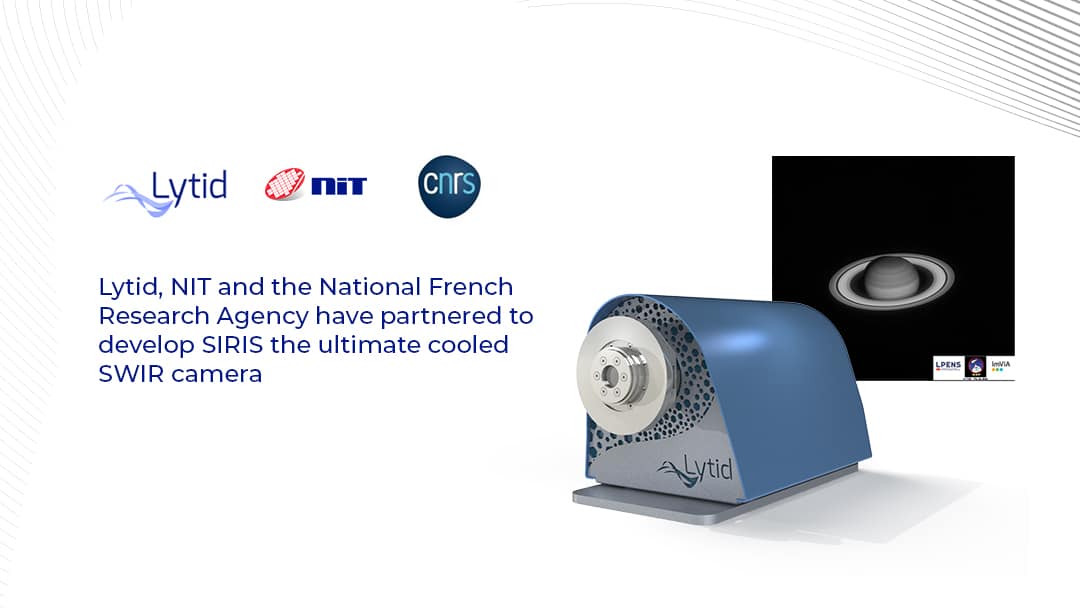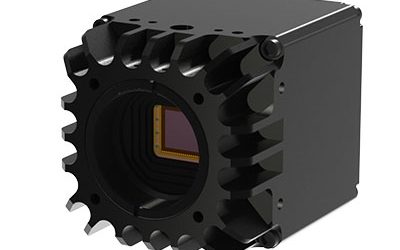Lytid has released the SIRIS SWIR camera – a deep cooled SWIR camera based upon a Lin/Log InGaAs sensor from NIT and image processing algorithms from the French Research Agency (CNRS).
SIRIS exhibits the best performance on the market for read-out noise (<10e-) and dynamic range (>120dB) simultaneously, thanks to NIT Lin/Log 1601 SWIR sensor. SIRIS is deep cooled down to 50K with a long-life cryocooler allowing a drastic reduction of dark current. Exposure time over one hour can be easily obtained. Everything is fully integrated into a compact and plug-and-play casing based on Lytid’s advanced photonic system integration.
Moreover, SIRIS incorporates advanced noise reduction algorithms developed by ENS-CNRS, among which non-destructive read-out noise reduction is embedded. The resulting noise performance is drastically reduced and the final readout noise is less than 10e-.
Applications for SIRIS cover high-end imaging such as astronomical research, bio-medical imaging, bioluminescence…




